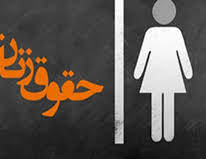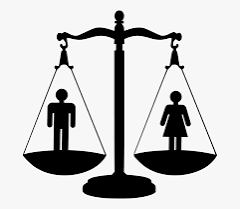The position of women in Islam
The position of women in Islam is a broad issue that is raised from Islamic religious sources and jurisprudential and social theories. Islam grants women rights and duties that may vary based on different religious and cultural interpretations. In Islam, women are respected and valued and have specific social, family, and financial rights based on religious principles. In the following, some principles and general concepts about the position of women in Islam are stated:
-
Basic equality:
- Islam views men and women as basic equality based on social rights and responsibilities. Both sexes are considered equal in front of religious laws and Islamic law, and from a religious point of view, both sexes have the same value.
-
Financial and economic rights:
- In Islam, women have the right to manage their own finances and have an independent income. Women can engage in business, work and economic activities and earn their income independently.
-
Family rights:
- Women in Islam have full family rights, which include the rights of marriage, divorce, alimony, and protection of children. These rights are determined based on the rules of Islamic Sharia and women can benefit from them.

- Women in Islam have full family rights, which include the rights of marriage, divorce, alimony, and protection of children. These rights are determined based on the rules of Islamic Sharia and women can benefit from them.
Women’s rights in society
Women’s rights in society refer to a set of rights and freedoms that are considered for women as individuals in different societies and communities, including the society of Afghanistan. These rights have been compiled in order to ensure access to facilities, resources and opportunities equal to men and to ensure respect for the dignity and human rights of women in societies. Below are some key principles and concepts about women’s rights in society:
-
Equal rights:
- Women should have access to the same rights as men. It includes social, economic, cultural, educational, and family rights. In other words, men and women should be equal before the laws and regulations.
-
Family rights:
- Women should have full rights in the family, including the right to choose a life partner, the right to divorce, the right to alimony, and the right to custody and education of children.
-
Financial and economic rights:
- Women should have independent access to financial resources and benefit from these resources. This includes the right to do business, participate in the labor market, own property, and inherit.
-
Educational and educational rights:
- Women should have equal access to education and training facilities with men and be able to fully participate in various educations and trainings.
-
Health rights:
- Women should have access to quality-oriented health and treatment services and be able to benefit from appropriate medical and health services.
-
Political rights and participation in decision-making:
- Women should be present in political activities and participate in social and political decisions and be recognized as active members in society.
Therefore, women’s rights have been considered as a fundamental issue in the society, and the social and cultural development of a country requires full respect and implementation of these rights.

Women’s rights in the current condition of Afghanistan
In the current conditions of Afghanistan after the political and military changes, women’s rights have been affected and given special attention due to the complex conditions and developments that have occurred in this country. Below we mention some important issues related to women’s rights in this situation:
-
Education rights:
- One of the important issues for women in Afghanistan is access to education. After the recent changes, there have been developments in the field of education that have affected some of the educational fields of women. Some women are denied access to higher education and attend universities, while others are subjected to various impositions.
-
Working rights:
- Women also face restrictions and problems in the field of work. On the one hand, some Afghan women have been pressured to follow certain practices and restrictions in the workplace, which can lead to their humiliation and deprivation of human labor rights. On the other hand, some Afghan women are denied access to suitable jobs and economic opportunities.
-
The right to attend public and political affairs:
- One of the fields that is important for women in Afghanistan is the right to participate in public and political affairs. Women have limitations at the level of social and political decision-making, and their presence and activity in these fields have been affected by political and security changes.
-
Health and treatment rights:
Access to healthcare services is also important for women in Afghanistan. Some regions of this country have limited access to these services, which can lead to serious health problems for women. -
Family rights:
- Women’s family rights are also an important issue in Afghanistan. Women should be recognized as equal members with the same rights as men in the field of marriage, divorce, alimony and children’s rights.
In general, women’s rights in the current conditions of Afghanistan need special attention and serious reforms so that women can fully use their basic rights and participate in all social, economic, and political fields.